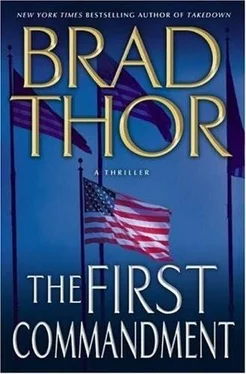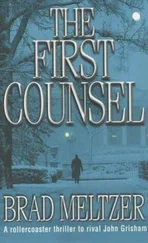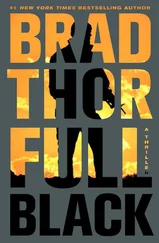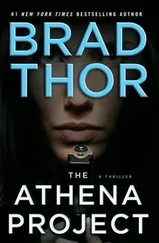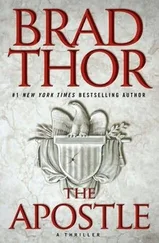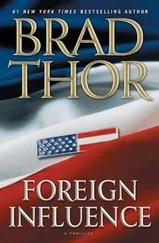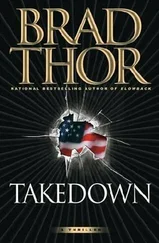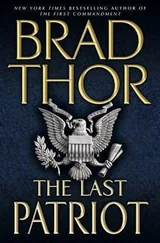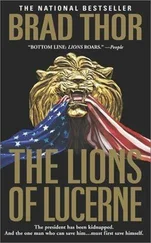Angra was composed of 365 different islands. The pilot pointed to a tiny speck of land on the near horizon. As they got closer, Harvath studied his map, along with the size and shape of the other islands around the Troll’s, and realized the pilot was correct.
He took it from exactly the approach Harvath had asked for. Leaning against the door, Harvath strained to take in as much of it as he could, burning the entire picture into his mind-the main building and its cottages, the helipad, the speedboat at the dock, the shape and layout of the island, all of it.
He’d be coming back tonight, but by then it would be very dark, and the darkness would only contribute to the danger of what he planned to do.
WASHINGTON, D.C.
James Vaile’s tenure at the CIA had not been marked by a particularly good relationship with the press. The devastating stories about the CIA’s secret prisons abroad and how the United States tracked terrorists through their banking habits still weighed heavily on him. And while the stories had come from asinine members of his own agency who put their dislike of the president’s policies above their loyalty to their country, all of his attempts to prevent those stories from being run had failed.
He had quickly learned that many newspapers had far more pride in their circulation than they did in their patriotism. That they were hobbling America and empowering her terrorist enemies made absolutely no difference to them. It was no wonder he held out little hope for being able to appeal to Mark Sheppard as an American.
If patriotism couldn’t motivate a reporter, sometimes he or she could be swayed by a promise of an exclusive on an even bigger story. But as in the cases of the secret prisons and the terrorist banking programs, Vaile didn’t have anything bigger to bargain with. He was going to have to find another way, and he’d have to do it in such a way that the Baltimore Sun reporter had no idea that the CIA was involved.
One of the first things Vaile did was to look into the man’s background. He’d met very few people in his life who didn’t have at least one skeleton in their closet. Unfortunately, though, Sheppard was clean. In fact, he was beyond clean. The man was practically a saint. Outside of a couple of speeding tickets back when he was in college, the reporter hadn’t so much as crossed against a light or faked the throw at an unmanned toll both.
Scanning his extracurricular activities, Vaile was further disenchanted as he discovered Sheppard donated a significant portion of his time helping underprivileged children throughout the Metropolitan Baltimore area. He even sat on one organization’s board.
Though Vaile didn’t want to do it, he quickly realized the only way to dissuade Sheppard from running his story was to threaten to go nuclear on him. If he didn’t cooperate, nothing would be left of the man’s former life but scorched earth.
A few hours later, once it was confirmed that everything was in place, the DCI picked up his phone and made the call.
The reporter picked up the phone on the first ring. “Mark Sheppard,” he sang, coming off a bit too eager. The DCI wondered if the journalist had already cleared space on his desk for his Pulitzer.
Any reporter worth his salt would have a recording device hooked up to his phone, so in addition to making sure his call was untraceable, James Vaile employed a new piece of technology that would render any recording inaudible when played back. He also used a modulator to disguise his voice. One could never be too careful, and what’s more, the computerized voice carried with it an added gravitas that often had a very unsettling affect on the receiving party. “Mr. Sheppard, we need to talk,” he said.
There was a pause as the reporter fiddled around for his record button, and then he said, “Who am I speaking with?”
“Who I am is not as important as what I have to say.”
“How do I know you’re for real then?”
“You called the White House press office for comment on a story you want to run,” said Vaile via the deep, computerized voice.
“And from what I’m hearing,” said Sheppard, “I’m going to guess that you’ve called to scare me into burying it.”
“I’ve called to give you a chance to do the right thing.”
“Really? What would that be?”
“There are serious national security issues at play here, which you don’t understand.”
“So as a patriotic American, I should kill the article, right? Forget it. I don’t buy it.”
Vaile decided to give the man one more chance. “Mr. Sheppard, the people of Charleston needed closure on that bus hijacking and closure was provided.”
The reporter stifled a laugh. “So the U. S. government is now in the business of making crime victims and their families feel better? Tens of thousands of crimes go unsolved every year. What makes this one so special?”
“This was a particularly heinous crime against children-” began Vaile before he was interrupted.
“That had national security implications,” said Sheppard as his mind put it all together. “Jesus Christ, this wasn’t some lone nut job. It was a terrorist act.”
“And you expect me to sit on this?” asked Sheppard.
“Yes,” replied Vaile. “Your story would be devastating to the public trust.”
This time, the reporter couldn’t stifle his laugh. “Well, maybe you should have thought of that before you dreamed this whole thing up.”
The DCI was quickly coming to the end of his patience. Before he could say anything, though, Sheppard asked, “Are you going to arrange an accident for me the way you did with Frank Aposhian and Sally Rutherford?”
“For the record, Mr. Sheppard, their deaths were an accident. The U. S. government is not in the business of murdering its own citizens.”
“Then I have nothing to worry about, do I?”
“That depends on if you’re going to cooperate or not.”
The reporter had received so many threats over the years that he didn’t spook that easily. “Really? And if I don’t?”
“Your story is tentatively entitled ‘Invasion of the Body Snatchers’-” began Vaile.
“How the hell do you know that?”
“Shut up and listen,” ordered the DCI. “You have it in a password-protected file. The password is Romero. Open it.”
Sheppard did as he was told. Inside, he saw that a subfolder named candy cane had been added. Instinctively, he clicked on it and was greeted by a page of images in thumbnail. He maximized one at random and his breathing stopped.
“You fucking assholes,” said the reporter as he realized what they were planning on doing to him. “It’ll never work.”
“I wouldn’t be so sure,” said Vaile. “Guilty or not, the stigma of pedophilia is almost impossible to scrub away.”
“Good thing I recorded this conversation, then,” crowed Sheppard.
Vaile laughed. “I suggest you try to play it back first before you stake your career and the rest of your life on it.”
His shockproof bullshit detector was telling him his caller wasn’t playing games. “You make me ashamed to be an American,” said Sheppard.
“Don’t you dare wrap yourself in the flag now,” chided the DCI. “You had your chance. We are at war and wars involve secrets. This is about doing the right thing for your country and you passed on it. In spite of that fact, I’m going to give you one more chance.”
“What’s to stop me from deleting them?” asked Sheppard, sounding determined to remain faithful to his journalistic integrity, but already losing his resolve.
“You can’t delete these images. Even if you could, there are more on both your laptop and desktop at home. We also have several convicted pedophiles who are willing to testify to numerous unsavory proclivities of yours. It’s a hole so deep you’ll never climb out of it.
Читать дальше
